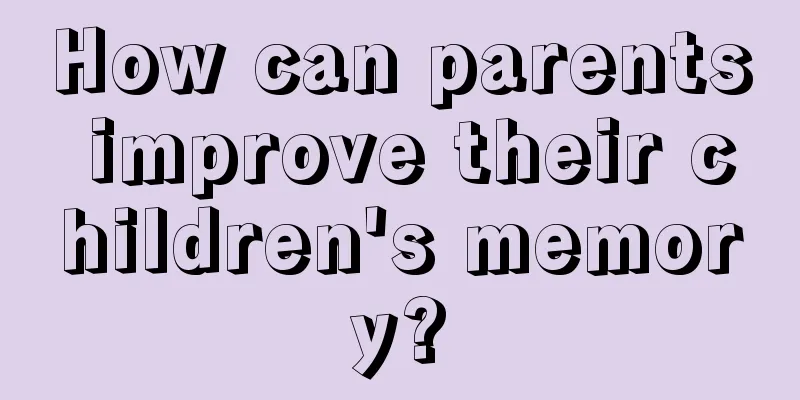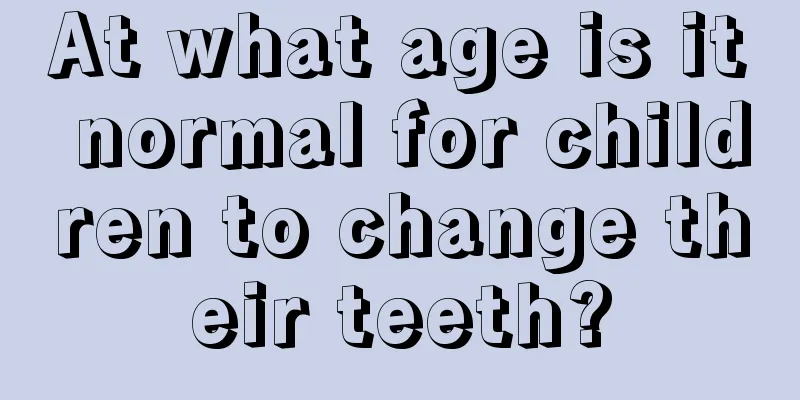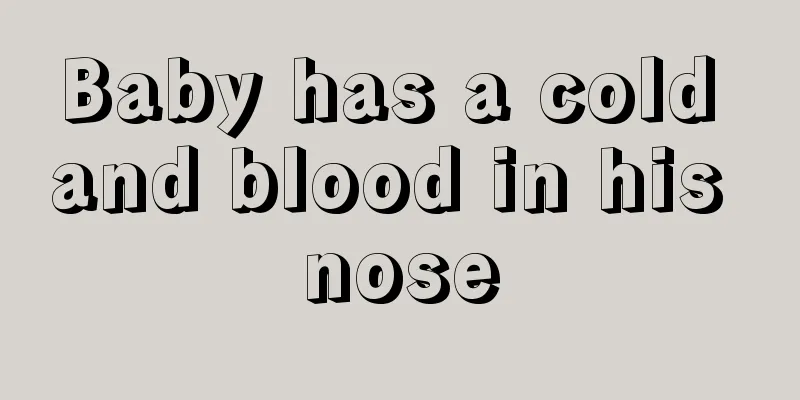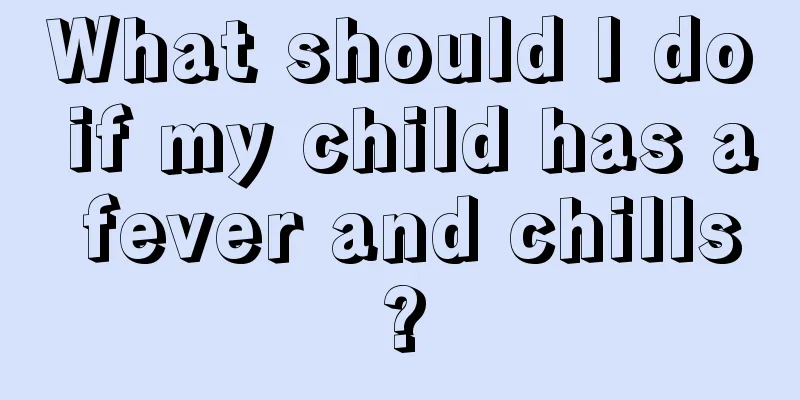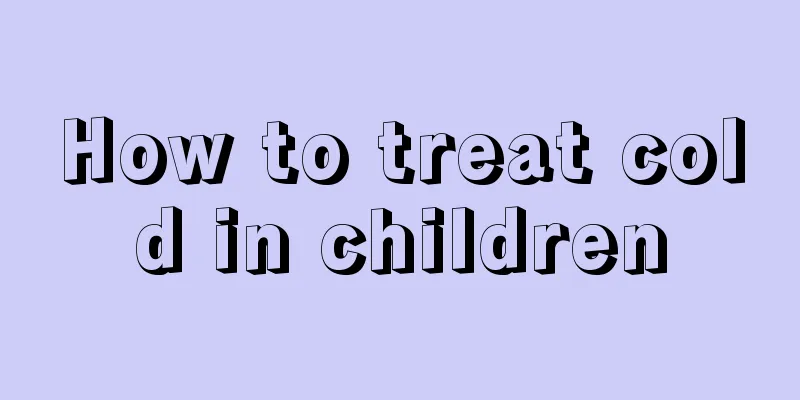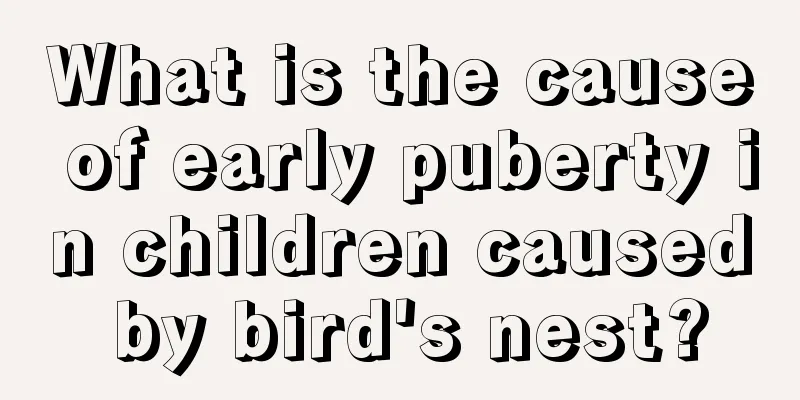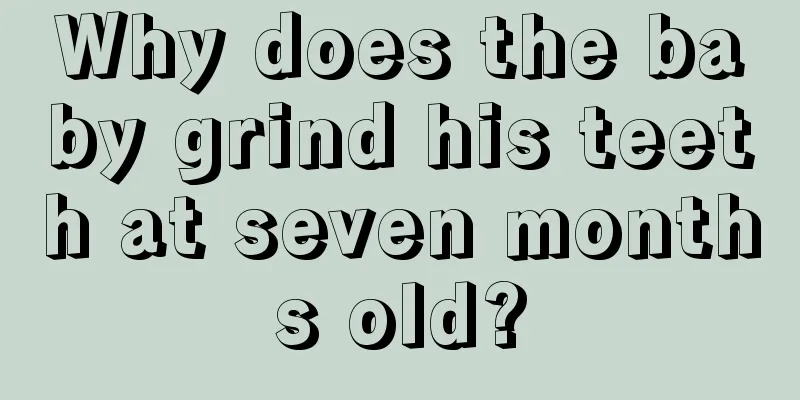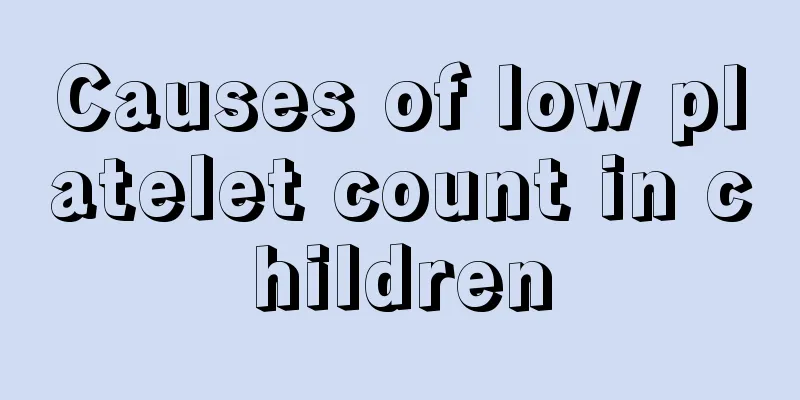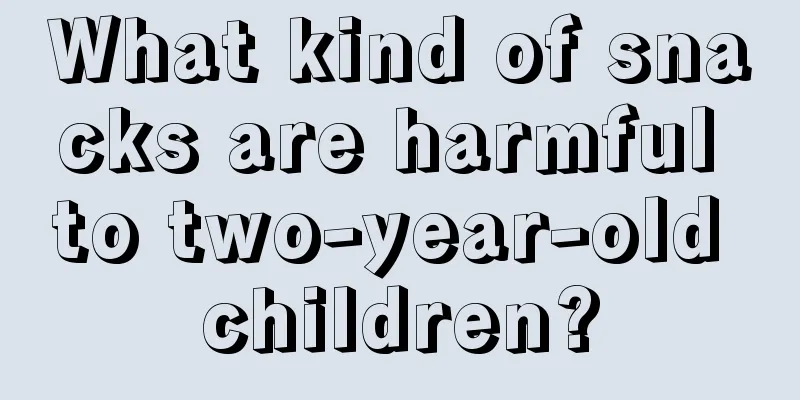Baby teeth replacement precautions
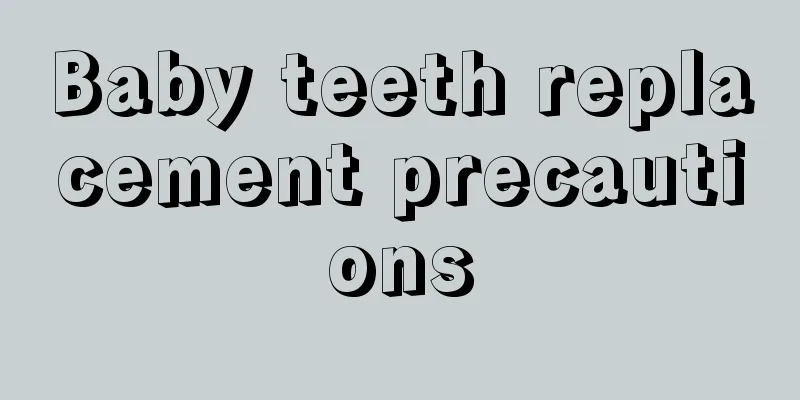
|
At what age does a baby start to change his teeth? The time of tooth replacement varies from child to child, which is normal. During the teething period of preschool children, parents should provide appropriate care to help their babies go through the teething stage smoothly. What should we do specifically? Let’s take a look at the editor’s suggestions. At what age do babies start to change their teeth? The tooth replacement period is usually between 6 and 12 years old. There are certain rules for tooth replacement. Simply put, it is a certain time, a certain order, left-right symmetry, and lower-first-upper-lasting. "Left-right symmetry and lower-first-upper-lasting" refers to teeth with the same name. The physiological shedding of the first deciduous tooth usually occurs around the age of 6, but it can also occur as early as 4 years old, or as late as 7-8 years old, so there is no need to worry. Naturally fallen deciduous teeth have no roots and the fallen surface appears eroded. Parents should pay attention to observe and not confuse them with broken roots of deciduous teeth. There are two different opinions about which permanent tooth the baby will grow first. One is that the first permanent molar that usually grows around the age of 6 grows close to the last deciduous molar, called the sixth-year molar, which erupts slightly earlier than or at the same time as the lower central incisor. Another theory is that the baby's first two middle front teeth to be replaced are in the lower row. Dentists say that this may be different for each baby. Then, the baby will grow upper central incisors and lower lateral incisors when they are 7-8 years old, upper lateral incisors when they are 8-9 years old, first and second canines when they are 9-12 years old, and permanent canines when they are 10-12 years old. What should parents pay attention to if they want their children to go through the tooth replacement period smoothly? Things to note when your baby changes teeth 1. Whether the deciduous teeth are retained or lost early There is a certain time and order for the shedding of deciduous teeth. Deciduous teeth that should fall out but don't are called retained deciduous teeth, and the consequence is often that permanent teeth cannot erupt in the normal position. Most children begin to change their teeth at the age of five or six, some start at the age of four, and some children may not lose their first deciduous tooth until the age of seven. Tooth loss usually starts with the two lower front teeth, followed by the two upper front teeth. The most common situation is that the lower front permanent teeth grow on the inside of the deciduous teeth, and the upper front permanent teeth grow on the outside of the deciduous teeth, making it look like double-layer teeth. What should you do in this situation? You should take your child to the hospital as soon as possible to remove the retained deciduous teeth and make room for the permanent teeth to erupt. If the deciduous teeth fall out before they should, it is called premature loss of deciduous teeth. This often causes the adjacent teeth on both sides to tilt toward the gap between the missing teeth, making the gap smaller and causing the permanent teeth to erupt out of place due to insufficient space. At this time, a gap maintainer (custom-made by the hospital's dental department) should be worn in the gap between the deciduous teeth to prevent the teeth on both sides from tilting, so as to maintain the proper eruption position of the permanent teeth until the permanent teeth erupt. 2. Is it difficult for permanent teeth to erupt? If the deciduous teeth fall out prematurely, the child will get used to chewing and licking with the gums, which will become thick and hinder the eruption of permanent teeth. Therefore, if your child has reached the age of replacing teeth but the permanent teeth have not yet grown, you should take your child to the hospital for examination in time to get the doctor's help. Calcium deficiency in children is also an important reason for the delayed eruption of permanent teeth. Parents should supplement their children with calcium in time. When the teeth are replaced, the permanent teeth erupt from below or inside the deciduous teeth. The erupted permanent teeth are the size of adult teeth, and it is normal to have slight crowding and twisting. 3. Correct children’s bad habits During the tooth replacement period, deciduous teeth and permanent teeth coexist. The permanent teeth have just erupted, especially the "six-year teeth" which are the "key to bite". They are large in size and have many pits and fissures on the occlusal surface, which easily retain food residues. In addition, most children do not brush their teeth thoroughly, so caries are often prone to occur. The most important thing at this time is to teach your child to brush their teeth correctly. During the tooth replacement period, when the deciduous teeth are loose and about to fall out, children often have the habit of licking the loose teeth with their tongues. This is a bad habit that will affect the normal eruption of permanent teeth and should be corrected in time. 4. Misaligned teeth will affect your appearance During the tooth replacement period, children's teeth are replaced, the jaws are developing, and the bite relationship is gradually established. Sometimes a temporary misalignment may occur, but during the development of the teeth, it can often adjust itself and return to normal. Some malocclusions, such as when the frenulum of the upper lip is too low, causing the gap between the upper front teeth to be too large and cannot be adjusted by itself, will affect facial development. You should go to the hospital for diagnosis and treatment, otherwise it will affect the child's appearance. 5. Prevention and treatment of caries in primary molars During the period of tooth replacement, deciduous molars are prone to caries. If caries cause apical disease, it can affect the growth and eruption of secondary permanent teeth. Therefore, attention should be paid to the timely treatment and prevention of caries in deciduous molars. We must not have the wrong idea that "deciduous teeth will be replaced sooner or later, so there is no need to treat them if they are damaged." Doctor's advice: Try to keep the deciduous teeth until the permanent teeth erupt. If the deciduous teeth are lost prematurely, it often leads to insufficient space for the secondary permanent teeth to erupt and cause malocclusion. 6. Eat more chewy foods when teeth are changing When children are about six or seven years old, permanent teeth begin to erupt and replace the original deciduous teeth. Although some children's permanent teeth have erupted, the deciduous teeth often refuse to "give way", forcing the permanent teeth to grow from the inside of the deciduous teeth, forming "double-layer teeth" and causing the permanent teeth to be unevenly arranged. There are many reasons for the delayed loss of deciduous teeth. The most common one is that children eat too finely and do not fully utilize the physiological stimulation of their teeth. The main function of teeth is to chew food. Chewing food can promote the growth and development of the roots of deciduous teeth as well as their natural absorption and shedding. Therefore, as children grow older, they should eat more chewy foods to maintain good stimulation to the deciduous teeth and encourage them to fall out on time. When the child's incisors and molars have erupted, you can add some celery, corn, apples and other foods to help the child complete the tooth replacement smoothly. |
<<: Symptoms of pneumonia in children
Recommend
What to do if your child's head sweats while sleeping
It is a very common thing that children often swe...
Can I take my baby out after three months?
When babies are young, their parents keep them in...
Why do children's teeth turn yellow?
During the growth process of every child, parents...
Is it okay for a child to turn over early?
Once you become a parent, you will involuntarily ...
The difference between diapers and disposable diapers
Families with children will use diapers on a dail...
What are the disadvantages of babies sucking empty bottles?
Babies who have not grown up yet are relatively f...
How to educate a two-year-old baby?
When the baby is about two years old, he or she c...
What should I do if my child has acute otitis media? These methods are effective
If a child develops acute otitis, the first thing...
What should I do if my newborn has white spots on his face?
Many parents report that their newborns have whit...
8 month old baby has diarrhea
It is very common for babies to have diarrhea. Th...
Is a baby fence necessary?
When a child comes into this world from his mothe...
What to do if a girl's lower body itches and hurts
Gynecological diseases do make many women worried...
How to treat skin allergies in children?
Allergy is a common symptom. Although it is not a...
Can babies bask in the sun through glass?
After a child is born, he or she needs extra care...
What foods can supplement children's poor memory?
With the development of economic life, more scien...
